 Character Traits Activities
Character Traits Activities
These activities focus on developing character traits that will help shape your child's behavior.
-

- Activity Title
- ?
Topic or Theme
Identifying letters in a child's name and listen to ABC (The Alphabet Song)

-
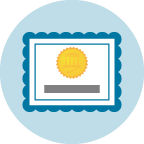
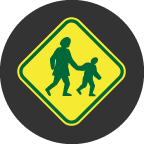
First Name
Brief description of activity or summary of tasks and/or materials used.
-

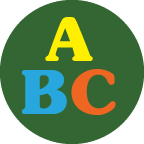
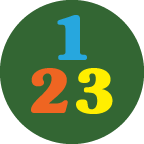
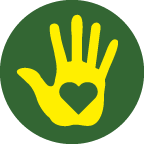

-
- Character Traits
- 12
Responsibility
Learning a responsible task
-
Responsibility
Learning a responsible task
-


-
- Character Traits
- 13
Caring
Memorizing a “kindness” fingerplay
-

Caring
Memorizing a “kindness” fingerplay
-




-
- Character Traits
- 13
Love/Forgiveness
Using song "Love Grows One by One" and real life examples to learn about love
-
Love/Forgiveness
Using song "Love Grows One by One" and real life examples to learn about love
-



-
- Character Traits
- 12
Confidence
Building confidence in a child
-

Confidence
Building confidence in a child
-

-
- Character Traits
- 12
Friendliness
Read book " Old Henry" and make a "Friendship Branch"
-
Friendliness
Read book " Old Henry" and make a "Friendship Branch"
-





-
- Character Traits
- 13
Responsibility
Focus on responsible behavior through conversation and actions
-

Responsibility
Focus on responsible behavior through conversation and actions
-


-
- Character Traits
- 13
Honesty
Finger play "I Need To Be Honest"
-

Honesty
Finger play "I Need To Be Honest"
-




-
- Character Traits
- 12
Honesty
Honesty and telling the truth
-

Honesty
Honesty and telling the truth
-



-
- Character Traits
- 13
Joyfulness
Listen to song " Joyfulness", finding joyful faces and using scissors
-
Joyfulness
Listen to song " Joyfulness", finding joyful faces and using scissors
-




-
- Character Traits
- 13
Confidence
Building confidence - special talents
-

Confidence
Building confidence - special talents
-


-
- Character Traits
- 13
Respect
Reading "The Monster At The End of This Book" and give positive reinforcement
-
Respect
Reading "The Monster At The End of This Book" and give positive reinforcement
-


-
- Character Traits
- 12
Respect
Knock first! Teaching respect
-
Respect
Knock first! Teaching respect
-



-
- Character Traits
- 13
Manners
Reading book "Goldilocks and the Three Bears" and emphasizing verbal manners
-
Manners
Reading book "Goldilocks and the Three Bears" and emphasizing verbal manners
-



-
- Character Traits
- 12
Self Control
Practicing self control
-
Self Control
Practicing self control
-



-
- Character Traits
- 13
Courage
Listen to the song "America (My Country Tis of Thee)" and use the courage to try something new. Click here to Watch/Listen
-
Courage
Listen to the song "America (My Country Tis of Thee)" and use the courage to try something new. Click here to Watch/Listen
-




Activity Skills Focus
1 Social / Emotional Skills
Skills that develop children’s ability to understand the emotions of others and help children recognize and use appropriate social behaviors (for example, making friends). In the Department of Education report “Guiding Principles A Resource Guide for Improving School Climate of January 2014 it states “strategies such as social-emotional learning programs that address non-cognitive skills, including problem-solving, responsibility and resiliency, can also help students develop the skills needed to fully engage and thrive in the learning environment.”
2 Language Skills
Skills that help children understand and communicate during early childhood. The alphabetic principle (knowing letter names and sound-letter matches) aids in language development and is enriched by verbal interactions with other children and adults (reading aloud and engaging in conversation).
View all Language Skills Activities
3 Math / Science Skills
Math and Science skills help children with problem-solving and reasoning. Exploring numbers, patterns, and measurements by using math manipulatives (beads, counters, pennies) are all ways children develop their math skills. Asking questions about their surroundings, learning a science vocabulary (predict, observe), and having hands-on experiences with their environment can help develop their science skills.
4 Motor Skills
Motor skills are actions that involve the movement of muscles in the body. They are divided into three groups:
1. gross motor skills, which are the larger movements of arms, legs, feet, or the entire body (crawling, running, and jumping)
2. fine motor skills, which are smaller actions, such as grasping an object between the thumb and a finger (pencils or scissors)
3. sensorimotor skills which use the five senses to guide physical motions as in eye-hand coordination.
View all Motor Skills Activities
5 Problem Solving Skills
Skills that help with the construction of thought processes, including memory, problem-solving, and decision-making.
